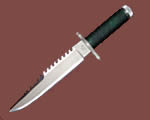 Go to main content
Go to main content
Archive Website of the UK government
Please note that this website has a UK government accesskeys system.
Main menu
Page menu
Young people

Knife crime

There have been a number of high-profile incidents where teenagers have been killed or injured by someone using a knife as a weapon. It’s important to know all about the laws that control who can carry and buy a knife.
What counts as knife crime
‘Knife crime’ is simply any crime that involves a knife.
This includes:
- carrying a knife or trying to buy one if you’re under 18
- threatening someone with a knife
- carrying a knife that is banned
- a murder where the victim was stabbed with a knife
- a robbery or burglary where the thieves carried a knife as a weapon
Carrying a knife
Some young people say that they carry a knife for protection or to make them feel safer, even though they wouldn’t think of using it. However, research has show that you’re actually more likely to become a victim of crime if you’re carrying a knife. In some cases, teens have been injured or killed by someone else using the knife they were carrying.
There are much safer and easier ways to protect yourself.
What are the knife crime laws in the UK?
There are quite a lot of different rules and laws that apply to knives. The main things you should be aware of are:
- if you’re under 18, it’s illegal to buy most types of knives
- anyone over 16 can be charged and taken to court if they’re caught with an illegal knife – even if it’s the first time they’ve been stopped by the police
- if you're under 16 and are caught carrying a knife, you could receive a community sentence or a detention and training order
- you could be searched at any time if a police officer or teacher thinks you may be carrying a knife
- even if you’re carrying a knife that you’re legally allowed to (like a penknife with a blade that’s shorter than three inches), it becomes illegal if you use it as a weapon to threaten or harm anyone
The maximum sentence for anyone found guilty of carrying an illegal knife is now four years. If you injure someone or use a knife to commit a crime the penalties could be a lot worse.
What you can do to stop knife crime
If you have a knife and want to get rid of it, talk to an adult who you trust. They’ll be able to help you find the best way to dispose of it. You might also want to find out when your nearest police station runs a ‘knife amnesty’. During an amnesty, you can hand in your unwanted knife without having to answer questions from the police.
If you have information about knife crime in your area and you're nervous about going to the police, you can call Crimestoppers on 0800 555 111. They will never ask for your name or try to trace the number that you're calling from.
There are also a number of local anti-knife crime campaigns run by police authorities and councils that you may want to get involved in. They organise activities to highlight the problem and talk with people living in the area about how it can be tackled.
If you're interested, find out about groups in your area by calling in to your nearest police station.

 Facebook
Facebook Twitter
Twitter StumbleUpon
StumbleUpon Delicious
Delicious Reddit
Reddit